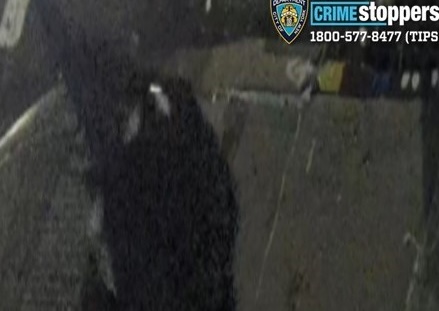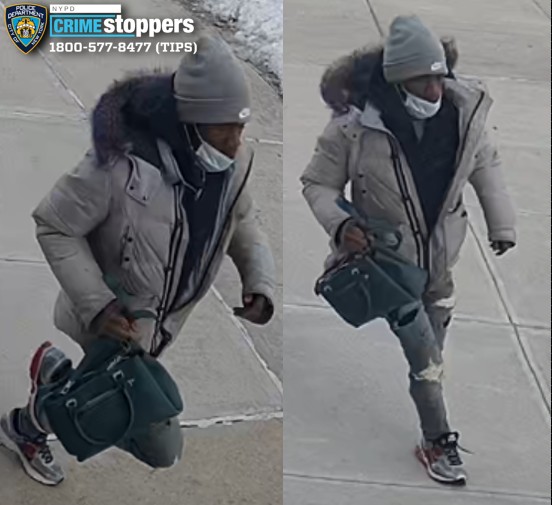
The ASPCA assisted the NYPD with the removal of nearly 40 dogs and cats, including puppies and neonatal kittens, from a property in Jackson Heights. The animals were living in deplorable conditions amid feces and urine-caked floors in a home that had an overpowering smell of ammonia and minimal ventilation, an infestation of flies, trash and clutter. The home did not have accessible water. Deceased cats were also found in the home. Photo courtesy of the ASPCA
Aug. 15, 2024 By Bill Parry
A recidivist animal abuser and hoarder from Jackson Heights was indicted by a Queens grand jury after dozens of dogs and cats were rescued from deplorable conditions from her home on 82nd Street in May.
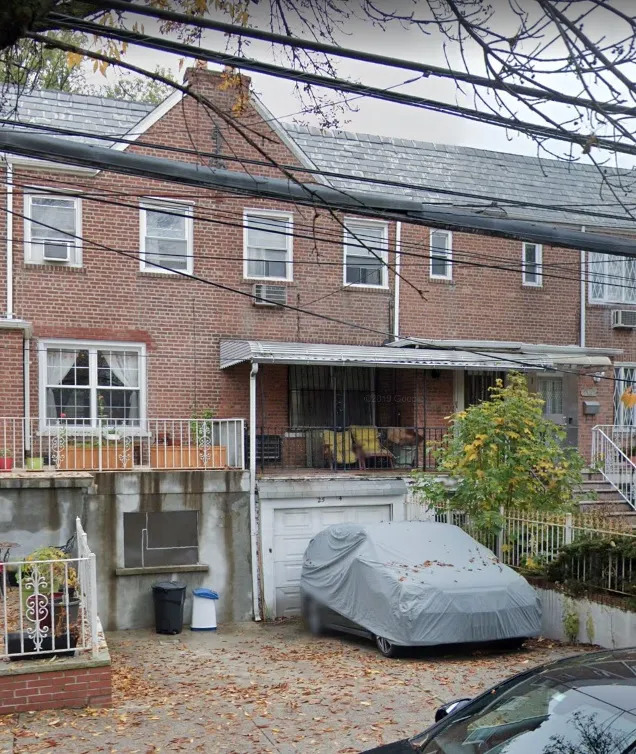
Cops have been to Elizabeth Grant’s home at 25-44 82nd St. several times over the years, rescuing dozens of cats and dogs from deplorable conditions each time. Queens Post file photo
Elizabeth Grant, 56, was arraigned Wednesday in Queens Supreme Court on an 88-count indictment charging her with aggravated cruelty to animals, torturing or injuring and animal and other related crimes for keeping 26 dogs and 12 cats in her filthy two-story home where they did not have accessible water, were living in squalid conditions amid feces and urine-caked floors. Three cats were found dead at the house, Queens District Attorney Melinda Katz announced on Thursday.
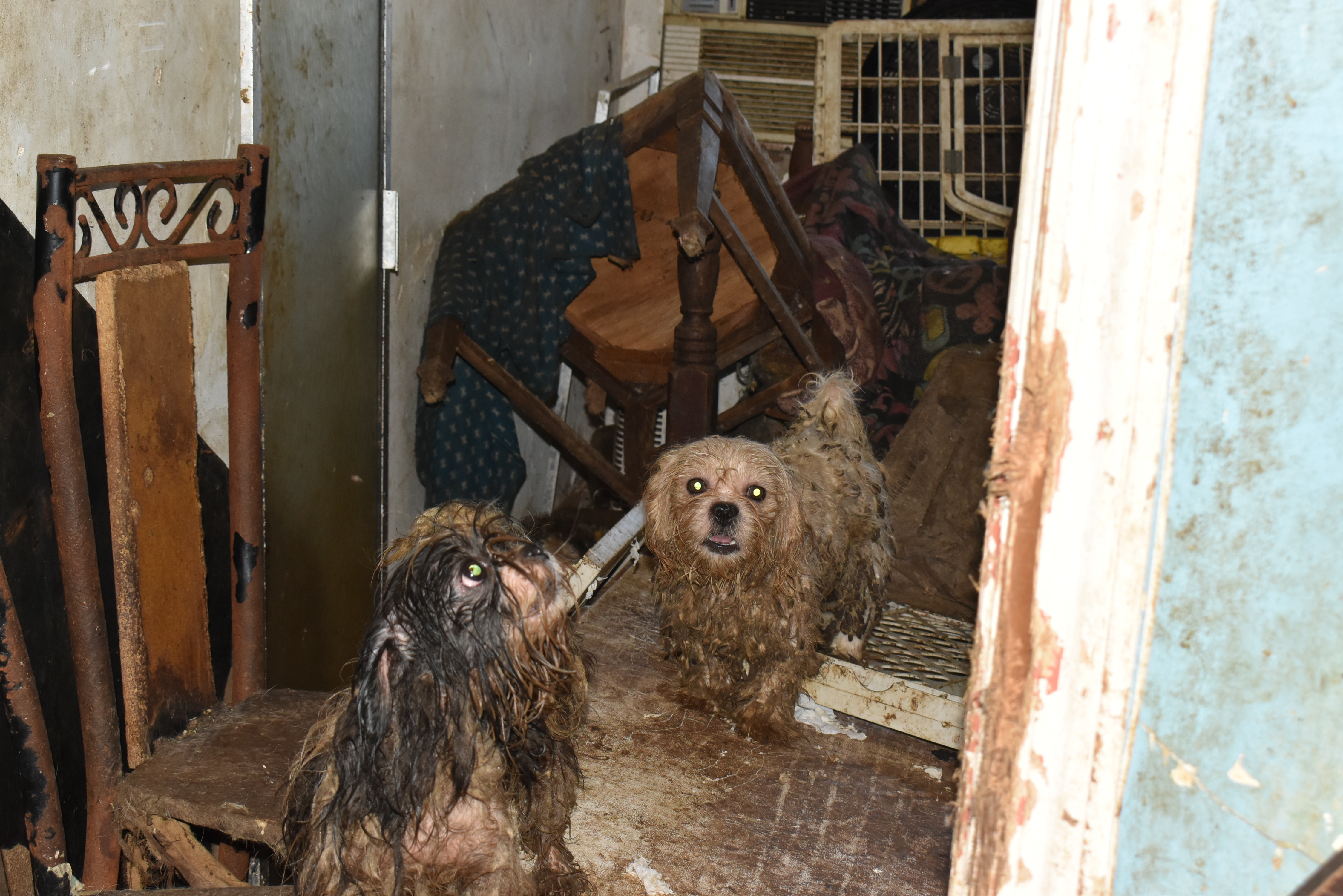
Photo courtesy of the ASPCA
“Pets are not collectibles. They require care, adequate food and water and a clean place to live,” Katz said. “Sadly, this defendant is charged with doing little more than accumulating pets and failing to provide the basic sustenance for life.”
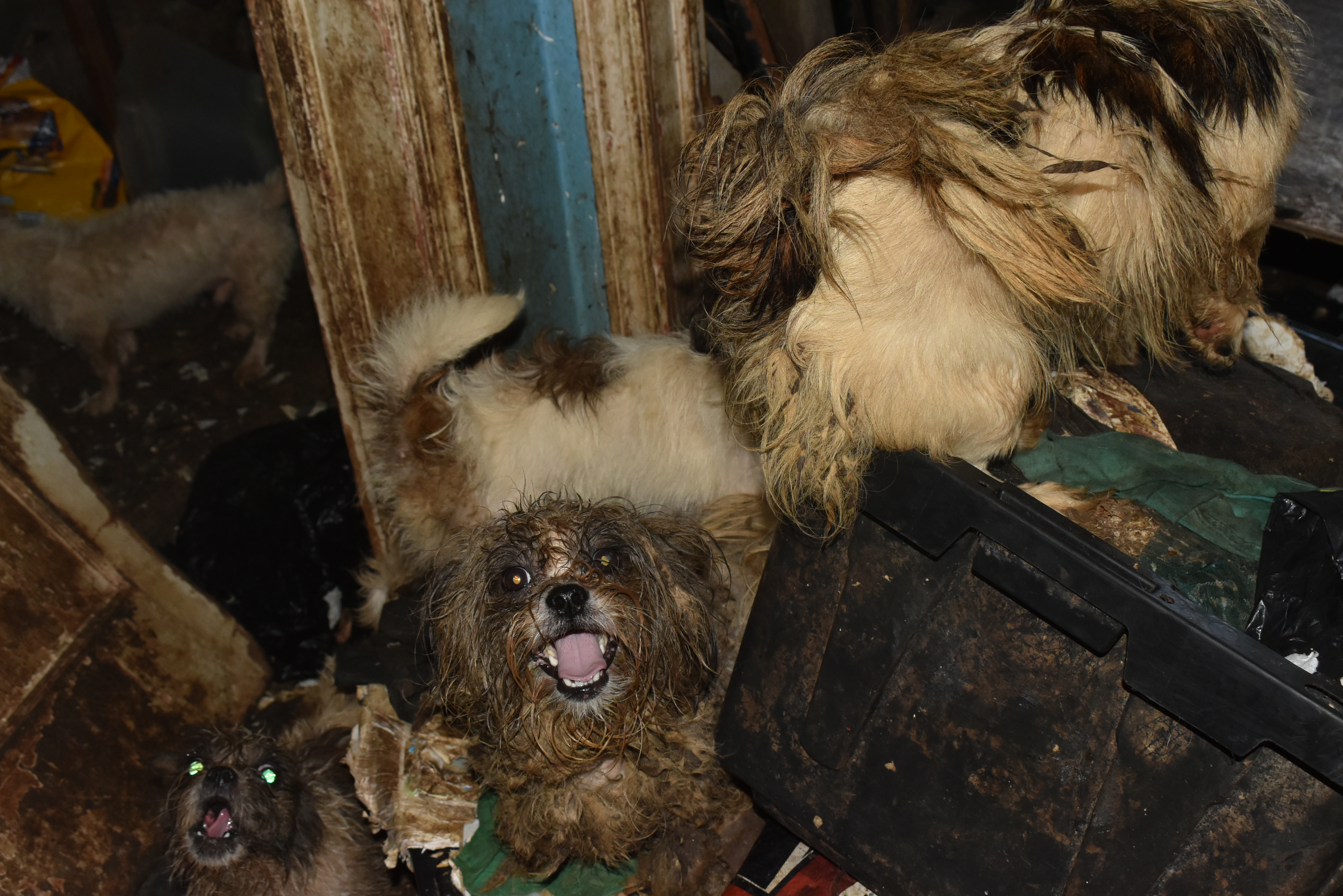
Photo courtesy of the ASPCA
According to the charges, police from the 115th Precinct in Jackson Heights executed a court-authorized search warrant for Grant’s home on May 21 and were hit at the entrance with a very strong odor of ammonia. Numerous dogs could be seen on the first floor, as well as one deceased cat under a table. After entering the residence, an officer allegedly observed feces, fur and urine on furniture, as well as the floor. There was an infestation of flies, trash and clutter throughout the first floor and there was no clean water accessible to any of the animals.
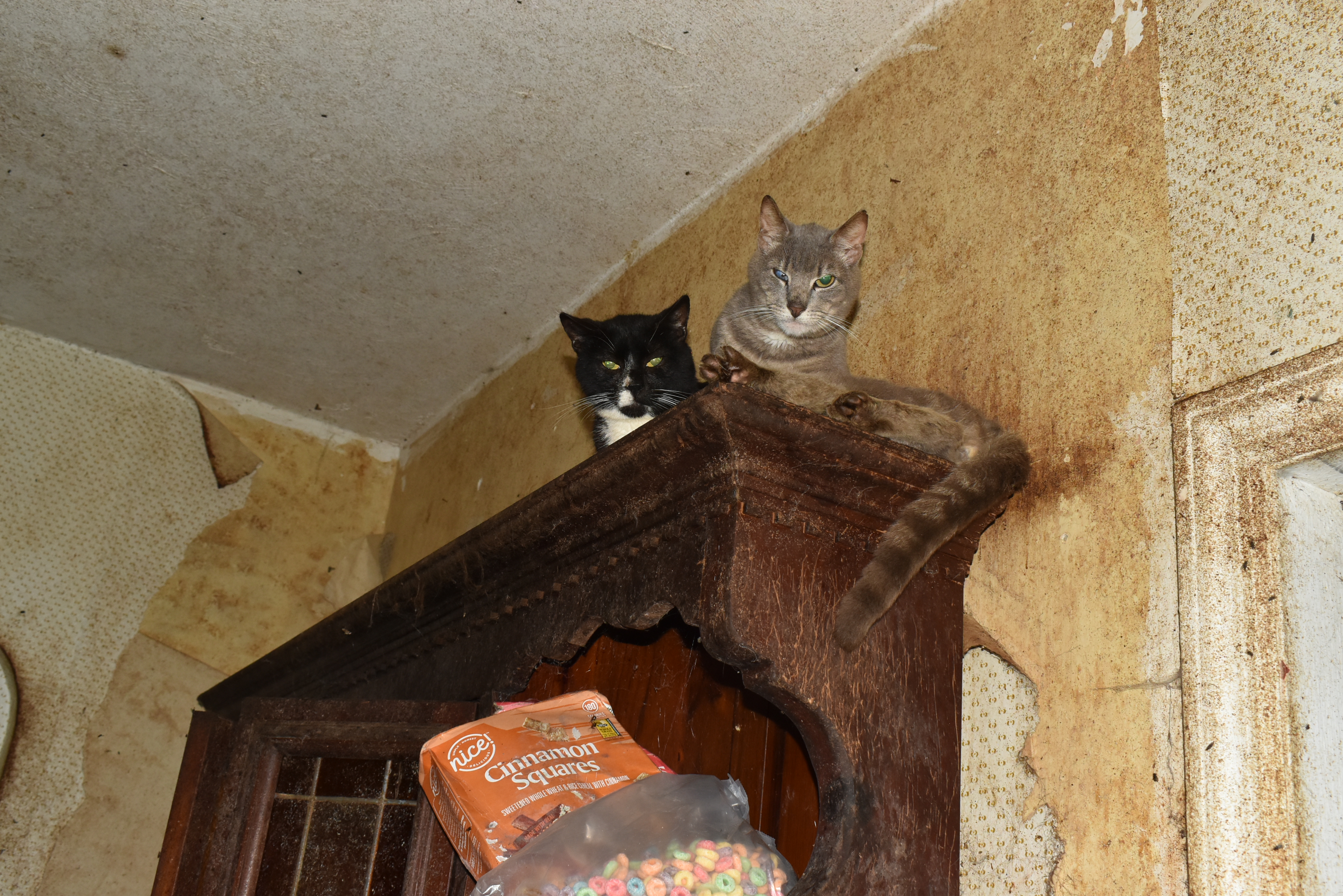
Photo courtesy of the ASPCA
Grant’s home also showed significant signs of disrepair. The stairs were so damaged that a ladder had to be used by first responders to access the second floor. The first-floor ceiling appeared peeling and rotting due to fluid damage. The ammonia odor was so strong it caused eye irritation and members of the NYPD and the ASPCA at the scene had to wear respirators and protective clothing.
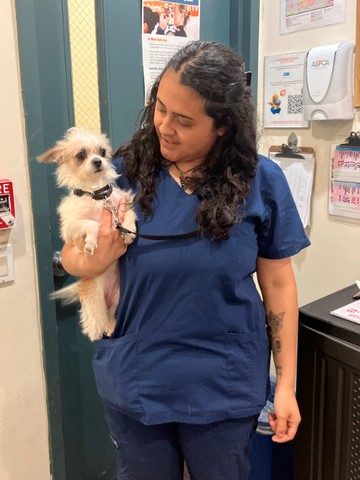
When the animals arrived at the ASPCA’s Animal Recovery Center in Manhattan, forensic veterinarians conducted exams on each of the animals and observed that many of them were extremely unhealthy and experienced pain and discomfort. Some of the animals had filthy, ungroomed, overgrown and matted hair coats, ocular, ear, dental and skin diseases, infections and inflammation on the bottom of their feet, untreated open wounds and poor body conditions. Many of the animals also demonstrated fear and undersocialization. Photo courtesy of the ASPCA
According to the criminal complaint, 26 dogs and 12 cats were rescued from the home and three deceased cats were removed. A veterinarian examination concluded that an approximately 3-year-old Shih Tzu mix was extremely underweight, had matted fur infused with urine and feces, an inflamed skin condition and a corneal ulcer on her left eye. A male Shih Tzu dog was dehydrated, emaciated and underweight. This dog was blind in his right eye, likely caused by a corneal rupture.
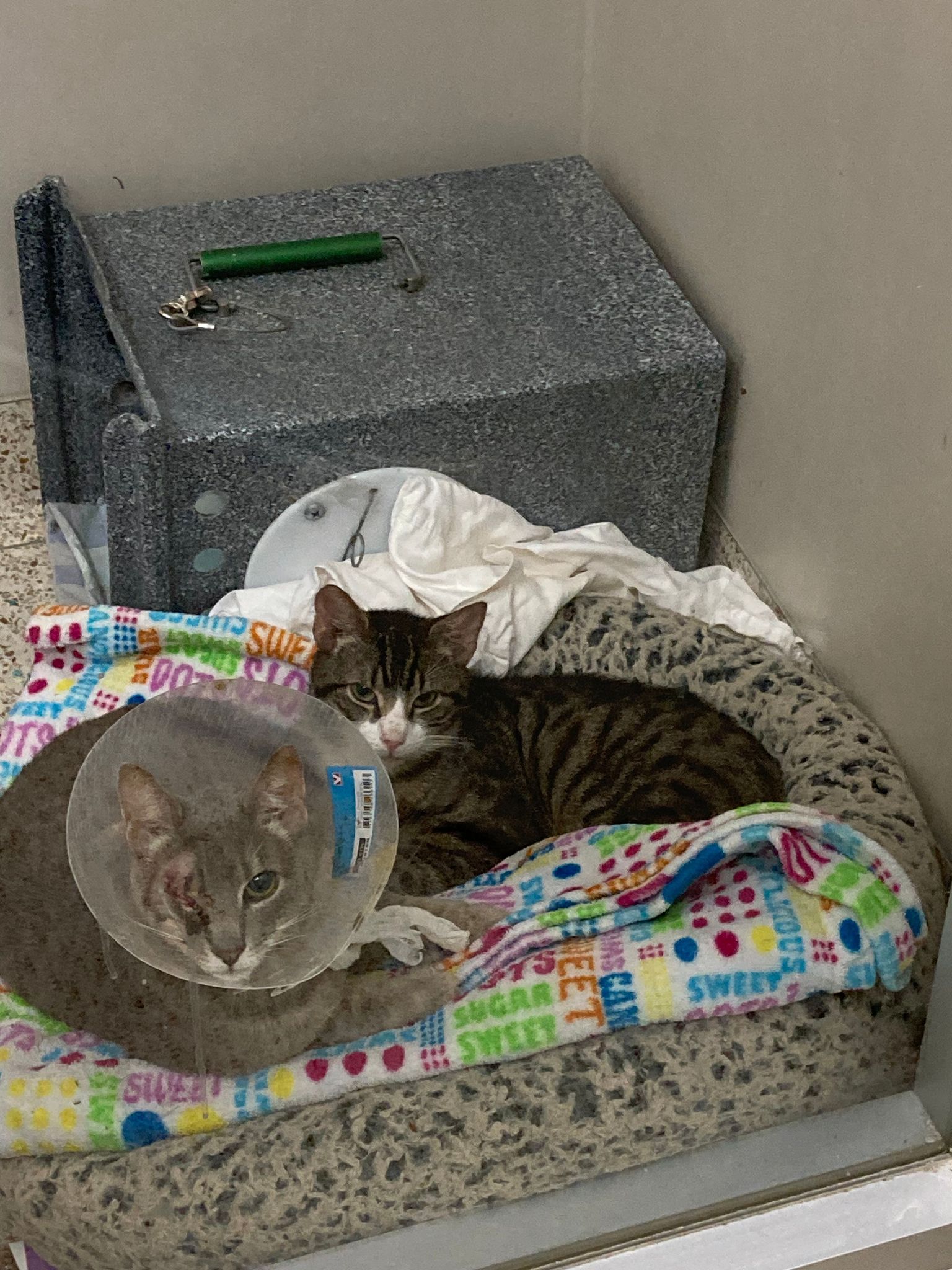
Photo courtesy of ASPCA
The veterinarian stated that the environment where the animals lived was completely inappropriate and insufficient to maintain their health. The overpowering odor made it difficult for the pets to breathe. The overcrowding, unsafe and filthy conditions exacerbated medical problems and caused suffering, discomfort and pain.

Photo courtesy of ASPCA
The animals were relocated to the ASPCA’s Animal Recovery Center in Manhattan for immediate medical and behavioral care.
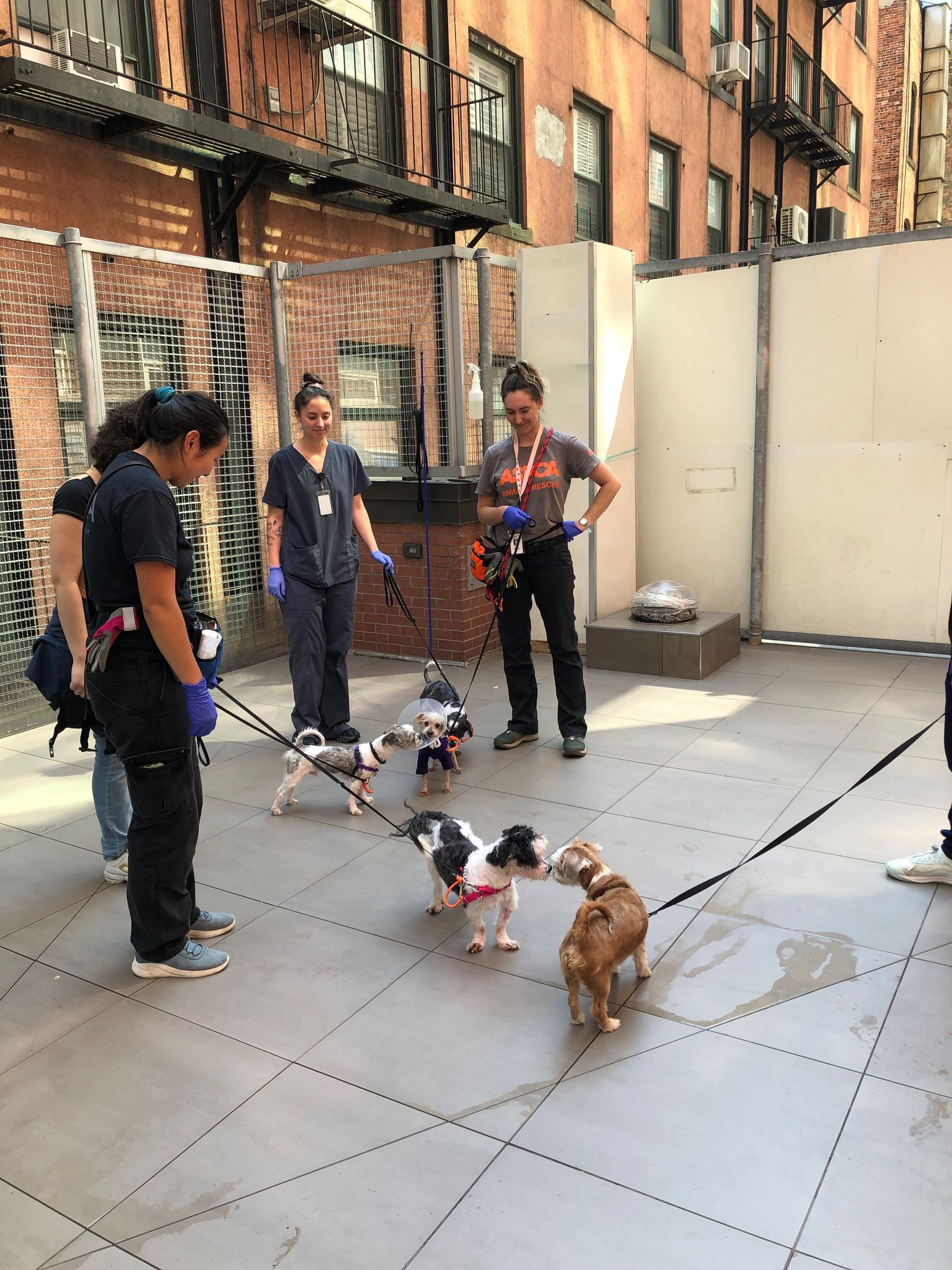
Photo courtesy of ASPCA
“The severity of this recurring hoarding situation – which has resulted in the suffering of countless animals and has put a tremendous strain on local resources – shines a light on the complexities and far-reaching effects of animal hoarding and how incredibly challenging it can be to effectively address and prevent,” said Stacy Wolf, senior vice president of ASPCA Policy, Response and Engagement.
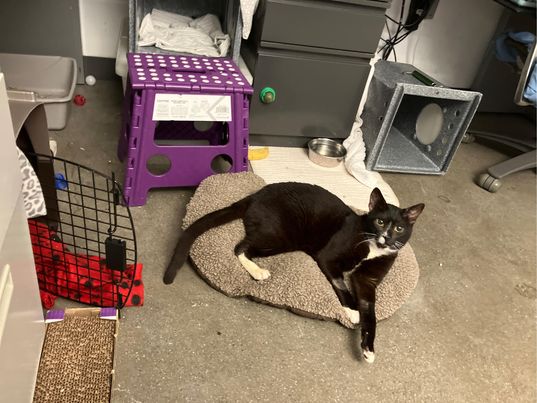
Photo courtesy of ASPCA
Some of the animals demonstrated fearful behavior and entered ASPCA rehabilitation programs, where they received specialized treatment to overcome their fear. Many of these cats and dogs have since been adopted into new, loving homes.
“These animals – and the rescue teams that helped bring them to safety – were exposed to severely dangerous hazards and deplorable conditions,” Wolf said. “We thank our partners at the NYPD and the Queens District Attorney’s Office for continuing to pursue justice in this case, and we hope to see an end to the ongoing pain this situation has caused for all of those involved over the years – animals and people alike.”
This is not the first time the ASPCA has helped rescue animals from this same home. In 2016, the ASPCA worked with the NYPD to remove nearly 70 animals from the residence. At that time, Grant was convicted on 108 counts of animal cruelty and sentenced to three years’ probation, with conditions including a ban on owning animals, which she failed to meet. The ASPCA and Animal Care Centers of NYC also helped remove animals from the home in 2018 and 2021.
At her arraignment on Wednesday, Grant was also charged with criminal contempt for allegedly violating the standing court order that she “shall not own, harbor, or have custody or control of any animal,” until April 30, 2028.
“Three animals are dead as a result of the defendant’s alleged negligence and the others suffered from diseases and other ailments,” Katz said.
Queens Supreme Court Justice Toni Cimino ordered Grant to return to court on Sep. 27. If convicted, Grant faces up to two years in jail.



